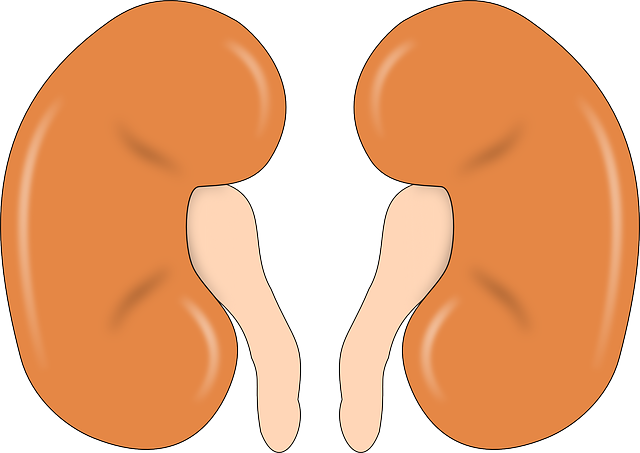
Image Source: Unsplash
## Introduction to kidney stones and dehydration
Kidney stones are a common health issue that affects many individuals worldwide. These small, hard deposits form in the kidneys and can cause excruciating pain when they pass through the urinary tract. While various factors contribute to the formation of kidney stones, one often overlooked aspect is dehydration. In this article, we will explore the link between dehydration and kidney stones, specifically focusing on how drinking less water in winter can impact your health.
Understanding the link between dehydration and kidney stones
Dehydration occurs when the body loses more fluids than it takes in. During winter, people tend to drink less water due to the misconception that they don’t sweat as much as in warmer months. However, this reduction in fluid intake can have detrimental effects on the body, including an increased risk of developing kidney stones. The connection between dehydration and kidney stones lies in the concentration of urine. When dehydrated, your body produces less urine, resulting in higher concentrations of minerals and substances that can crystallize and form kidney stones.
How dehydration contributes to the formation of kidney stones
Dehydration plays a significant role in the formation of kidney stones. When you don’t consume enough water, your urine becomes more concentrated, allowing minerals like calcium, oxalate, and uric acid to come together and form crystals. These crystals can then clump together and grow into larger stones over time. Additionally, dehydration reduces the volume of urine, making it difficult for the kidneys to flush out these crystals. As a result, the crystals remain in the kidneys, increasing the chances of stone formation.
Furthermore, dehydration can lead to a decrease in citrate levels in the urine. Citrate is a substance that helps prevent the formation of kidney stones by inhibiting crystal growth. When dehydrated, the body produces less citrate, making it easier for stones to develop. Therefore, it is crucial to maintain adequate hydration to ensure a healthy balance of urine composition and prevent the formation of kidney stones.
Risk factors for developing kidney stones due to dehydration
While dehydration is a key factor in the formation of kidney stones, certain individuals may be more susceptible to this condition. People who live in dry climates or engage in strenuous physical activities without proper hydration are at a higher risk. Additionally, individuals with a history of kidney stones or certain medical conditions, such as urinary tract infections or gastrointestinal disorders, may also be prone to developing kidney stones due to dehydration. Understanding these risk factors can help you take proactive measures to prevent kidney stones.
Symptoms of kidney stones caused by dehydration
The symptoms of kidney stones caused by dehydration can vary from person to person. Common signs include severe pain in the back or side, blood in the urine, frequent urination, and a persistent urge to urinate. Some individuals may also experience nausea, vomiting, and fever. If you notice any of these symptoms, especially after a period of reduced fluid intake, it is essential to seek medical attention promptly. Early detection and intervention can prevent complications and provide relief from the discomfort associated with kidney stones.
Prevention and management of kidney stones through hydration
The most effective way to prevent kidney stones caused by dehydration is to maintain adequate hydration throughout the year, including the winter months. Aim to drink at least eight glasses of water per day, or more if you engage in physical activities or live in a dry climate. It is important to note that other beverages like tea, coffee, and soda do not provide the same level of hydration as water and may even contribute to stone formation. Therefore, water should be your primary source of hydration.
Hydration tips for preventing kidney stones
To ensure optimal hydration and reduce the risk of kidney stones, consider the following tips:
- Carry a reusable water bottle with you at all times to encourage regular water intake.
- Set reminders on your phone or computer to drink water throughout the day.
- Drink a glass of water before each meal to increase your overall fluid intake.
- Flavor your water with lemon or cucumber slices to make it more enticing.
- Limit your consumption of caffeinated and alcoholic beverages, as they can contribute to dehydration.
- Eat water-rich foods like fruits and vegetables to supplement your fluid intake.
By incorporating these habits into your daily routine, you can maintain proper hydration and reduce the likelihood of developing kidney stones.
Other factors that can contribute to kidney stone formation
While dehydration is a significant factor in kidney stone formation, it is essential to recognize that other factors can also contribute to this condition. These include a diet high in sodium and animal protein, obesity, certain medications, and underlying medical conditions such as gout or hyperparathyroidism. It is crucial to address these factors in conjunction with maintaining hydration to effectively prevent kidney stones.
When to seek medical attention for kidney stones
If you suspect you have kidney stones or experience severe pain, blood in the urine, or any other concerning symptoms, it is vital to seek medical attention. A healthcare professional can conduct diagnostic tests, such as imaging studies and urine analysis, to confirm the presence of kidney stones and determine the most appropriate course of treatment. Early intervention can help prevent complications and alleviate discomfort associated with kidney stones.
Conclusion: Importance of staying hydrated to prevent kidney stones
In conclusion, dehydration can significantly contribute to the formation of kidney stones. By understanding the link between dehydration and kidney stones, you can take proactive steps to maintain proper hydration throughout the year, including the winter months. Remember to drink plenty of water, limit beverages that can cause dehydration, and incorporate hydration tips into your daily routine. By staying well-hydrated, you can reduce the risk of developing kidney stones and maintain overall urinary tract health.
Don’t let dehydration lead to kidney stones. Stay hydrated for a healthier future!



